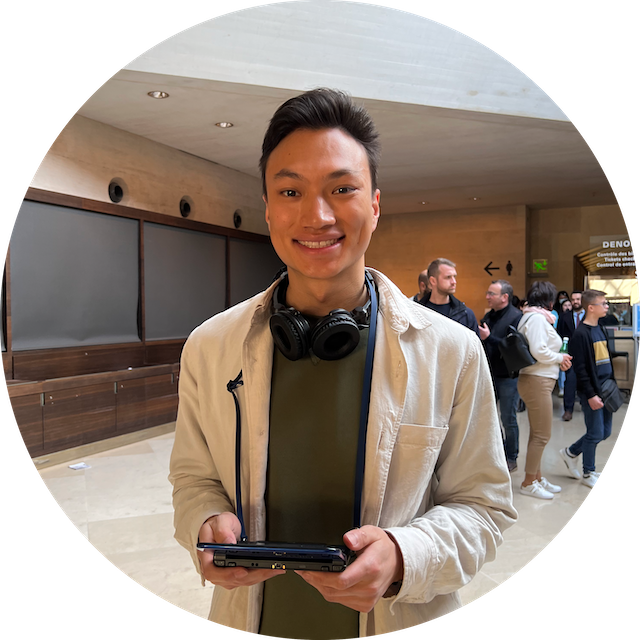When I was younger, I never told anybody anything about the constant conflict in my family. I never told anybody about my worst thoughts, the internal conflict I had about just about everything, or about how much I had once thought about death.
How I longed to answer the “How are you?” as a naive high school sophomore with, “you know, I think I’m kinda falling apart actually. My parents are constantly fighting; my dad is still fighting about my brother being gay. I miss warm weather in California and I’m sick and depressed every winter here in Ohio. I think my dad’s company could go bankrupt any time, and I don’t want to move again. I’m always anxious about everything related to socializing and friendships and public speaking. Sometimes, I feel like I just don’t fit in, and everybody else is operating on a different playbook that I don’t have. I feel like I’m performing what people expect from the Asian kid in the class, and don’t ever feel like myself, whatever that means. And I’m not really sure when things are supposed to feel different.” Naturally, I lacked the self-awareness to articulate my feelings about any of these things. I just said, “I’m doing okay”, while often feeling like I wasn’t actually okay. I didn’t want to say any of those things because I thought saying would make them true. But I was just lying to myself and everybody around me; they were already true.
In high school, I felt like I lived in two lives. One at home — where everybody was depressed and undiagnosed and fighting and avoidant and anxious, addicted to escapism through endless video games and TV shows. One at school — where I felt like an imposter amongst the Patagonia-wearing, predominantly white Ohioans in a tiny class of people who had most known each other since kindergarten. I thought that if I worked really hard to fit in, kept working on myself, and kept chugging along to get into a good college, I’d feel normal one day, and life would make more sense (in retrospect, this wasn’t that far from the truth 😅). On the outside, we had the perfect house in the perfect cul-de-sac; I drove my dad’s leased Mercedez-Benz to school while he was absent on some business venture (which was almost always); I had good grades. On the inside, my family’s finances were holding on by a thread, and so were all of us, in different ways.
Around when I was 18, I started slowly letting a few people in on my life more. I told some of my friends that my parents were getting divorced; I told others how I effectively dropped out of middle school. I talked to friends about my family’s toxic relationship with money, how I was struggling to figure out how to pay for college after FAFSA assumed my parents would help and they couldn’t, how I was dealing with OCD-like tendencies and anxieties, about my often-fraught relationship with my parents.
I told people about my hopes and dreams and fears, and they told me theirs.
Over time, I started thinking about vulnerability as a muscle that you exercise. The more you exercise, the easier it is to be more and more vulnerable.
I’ve always loved the 1am 1:1 conversations in the car, sitting right outside of the garage, but you keep talking and talking. I rarely drive anymore, and have never owned a car, but I used to ask specific friends for rides just so I could maybe get a chance at that garage conversation. I love that moment when they turn off the car engine, deciding that you’re going to be there for a while. You get into the depths of your problems, and you internalize out loud, and you practice vulnerability. Every time is like a gym session where you set new PRs, but instead of lbs it’s emotional depth.
The other realization as I’ve gotten older is that embracing vulnerability creates opportunities for empathy and openness, and better, deeper relationships in general. Vulnerability breeds vulnerability. As you share more, they do too. You understand that you’re not in this alone — and everybody and everything is far more complex and beautiful than you think. I realized that everybody else was going through their own issues — they just came in a different flavor than mine. As I started to understand more about people, my restrictive world views started to wither — whether that was how broken I thought I once was or how I thought life ought to be. Life began to make more sense, and the stereotypes and half-baked assumptions I had about other people started to wither too.
For many people in my life, the vulnerability-over-time of our relationship graph looks quite different. There’s coworkers who I’ve told my life story, and decade-old friends who’ve only seen some parts of me. It doesn’t really depend on anything in particular other than our relationship and the number of opportunities for vulnerability we’ve had. The number of parked-car conversations. I trust most people, but sometimes it’s hard to find those moments.
In writing, I find it the easiest to be vulnerable. Writing exercises the muscle rapidly. I’m no longer as worried when I share my writing with other people. I think the most clearly when I’m writing, but it’s taken me years to get there. Sometimes I’ve shared journal entries in relationships or raw writing drafts with my friends and coworkers. I trust that they’ll interpret it the best way they can and understand me better.
I think the most important breakthroughs in life are rarely made alone — they’re made with help from others, figuring out this weird accident of a life together. And we can only do that if we let others in. Much of me writing more is an attempt at just that. ✍️

